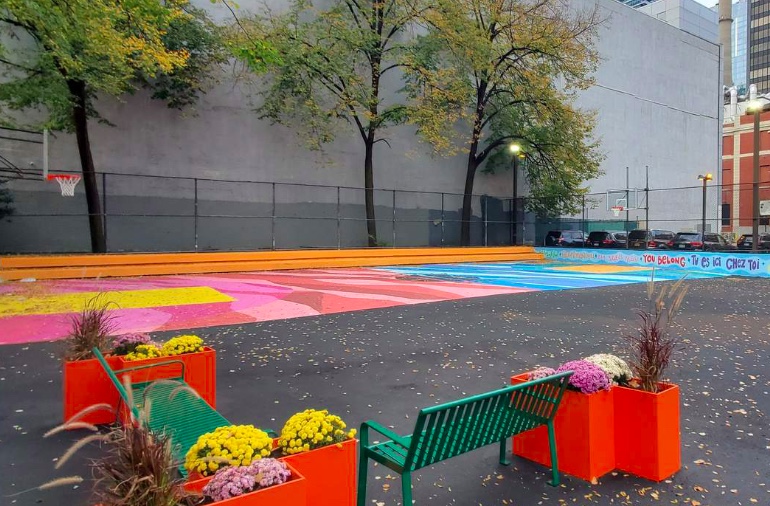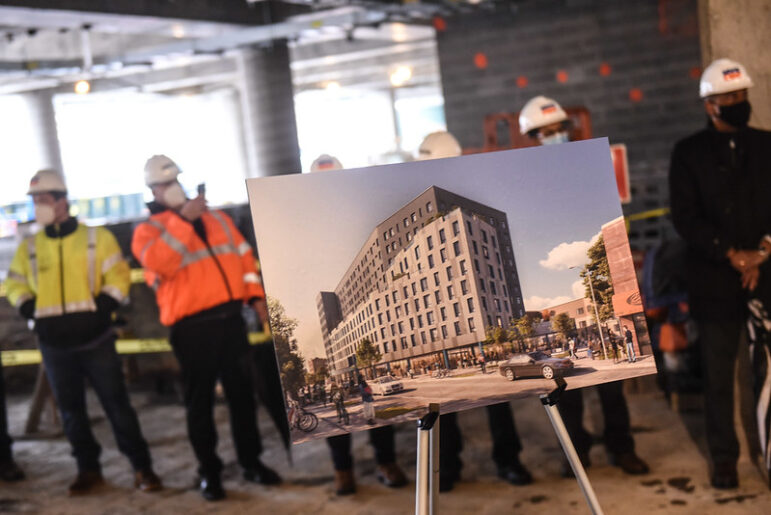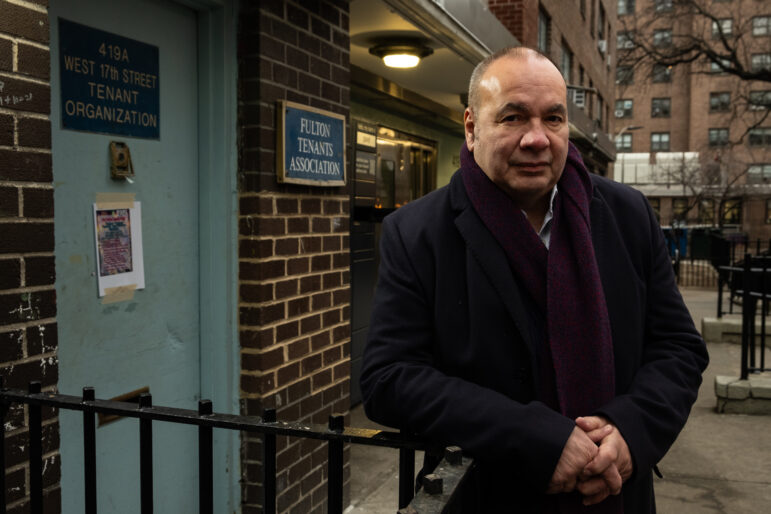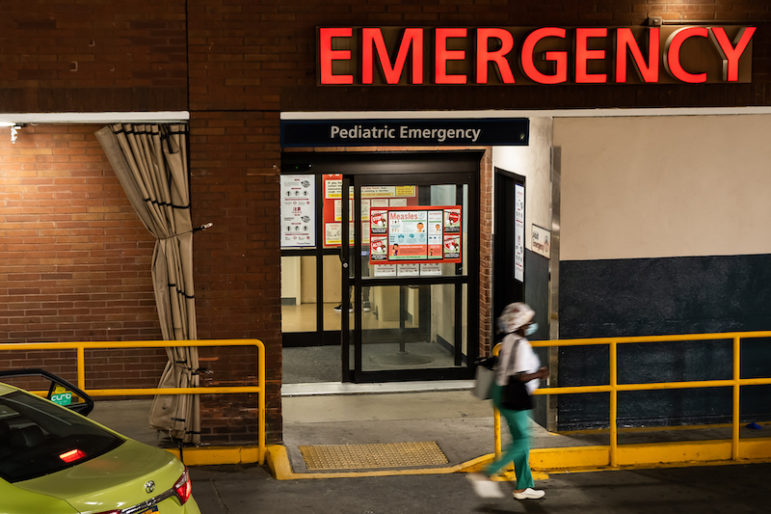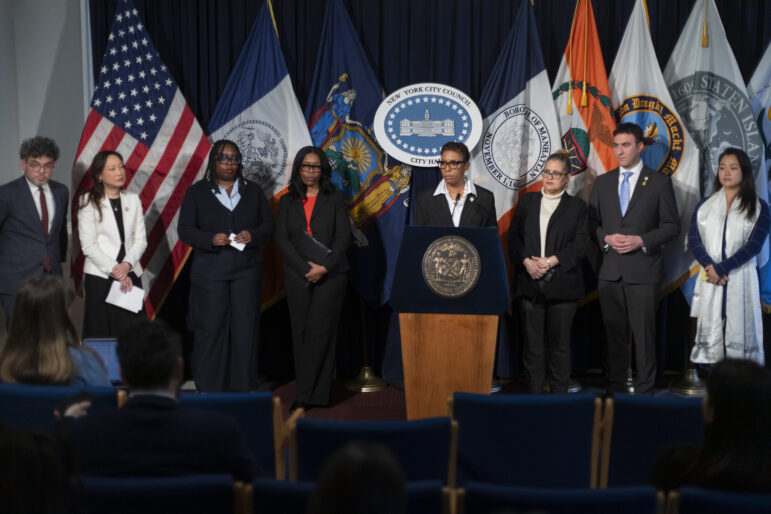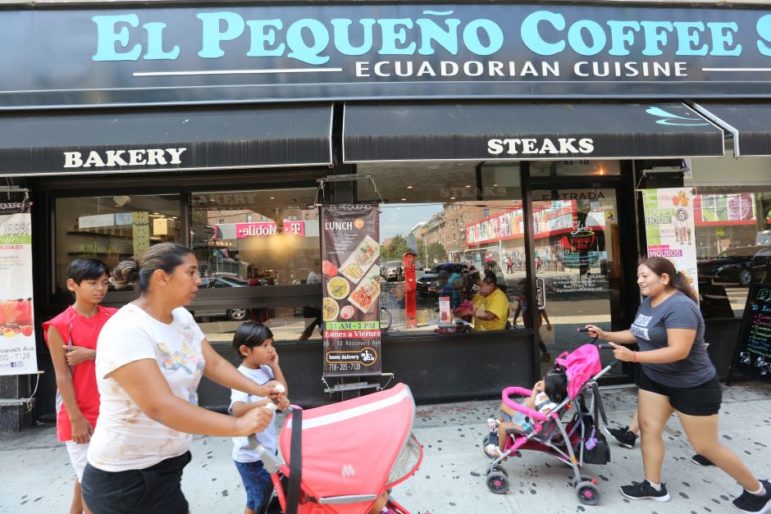
El Diario/Mariela Lombard
The Ecuadorian community continues to grow in Corona and Jackson Heights, Queens.
Read the original story in Spanish at El Diario
Translated and condensed by Carlos Rodríguez Martorell
The traditional Hispanic Day Parade, which for years has paid homage to the Latino community living in the Big Apple, took place on Sunday, Oct. 13. Beyond folkloric performances and appearances by well-known celebrities, the parade is a great excuse to pay tribute to the great contributions the Latin American immigrant community makes to New York City.
“What we contribute here is work, work and more work, because we are the best at that, and employers know it,” said Mexican immigrant Jorge Pineda, who sells fruits at a store in Corona, Queens. He added that Latinos are respectful people, unlike the image Donald Trump and many of his followers have tried to paint. “Most of us come here to make a living and are not stealing or doing bad things. As a good Latino, the best way for me to celebrate is by going to work.”
Colombia native Alejandra González, the friendly face at the counter of a bakery on Junction Boulevard, Queens—a borough home to 21 percent of all New York’s Latinos— said with a big smile that “joy” is the community’s main contribution to the city, as well as business.
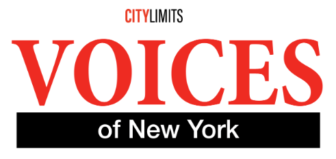
Voices of New York spotlights ethnic and community reporting from around the city. Click here to read more.
“People born here tell us all the time that we are cheerful and ‘berracos,’ as we say in Colombia; that is, that we are go-getters and that, even though we make money here and send it back to our countries, we’re also big spenders and are moving money in local businesses,” she said. “We also bring our culture with us. I myself have taught many ‘blanquitos’ [white people] who are crazy about us to dance salsa and vallenato. Trump should drop by one day so we can make him dance and give him some pan de bono [Colombian pastry] to see if that makes him stop hating us so much.”
Asked about how she will celebrate Hispanic Heritage Day, she agreed with other Latinos across the city: “I will spend it working, as I always do, but I will also thank God, as I always do, and having a good time.”
Rogelio Rodríguez from Mexico expressed a similar sentiment, saying that working hard is the best way to celebrate Hispanic heritage.
“This city needs to acknowledge that we Latinos don’t just put hot sauce on their tostadas but we also bring our music, hard work, pay taxes, and are not walking around complaining about everything,” said Rodríguez, who is a father and cook at a Latino restaurant in Corona. “We are also among the people who spend the most money, pushing the economy forward. We are good tippers, and we know how to behave.”
Raúl Mantilla, a court interpreter working in The Bronx, marks Hispanic Heritage Day with his colleagues by highlighting the local contributions of Latinos.
“Along with 10 other Latino organizers, we have held an event called ‘Celebrating Immigrants throughout History’ here in The Bronx for the second year in a row. Our way of celebrating was to bring distinguished immigrants who have made contributions to this society, such as Judge Carmen Velásquez of the Queens Supreme Court and Congressman Adriano Espaillat, who was undocumented and showed through his hard work that you can get very far,” said the Ecuador native.
Councilman Ydanis Rodríguez, who represents northern Manhattan, noted that the Latino community has deep roots in the city.
“We Latinos are not newcomers to New York City,” he said. “Juan Rodríguez, a Dominican who came undocumented from the island, was the first [Hispanic] immigrant who came here in 1613, and today we are the largest minority over African-Americans, with 29.1 percent of the population.”


